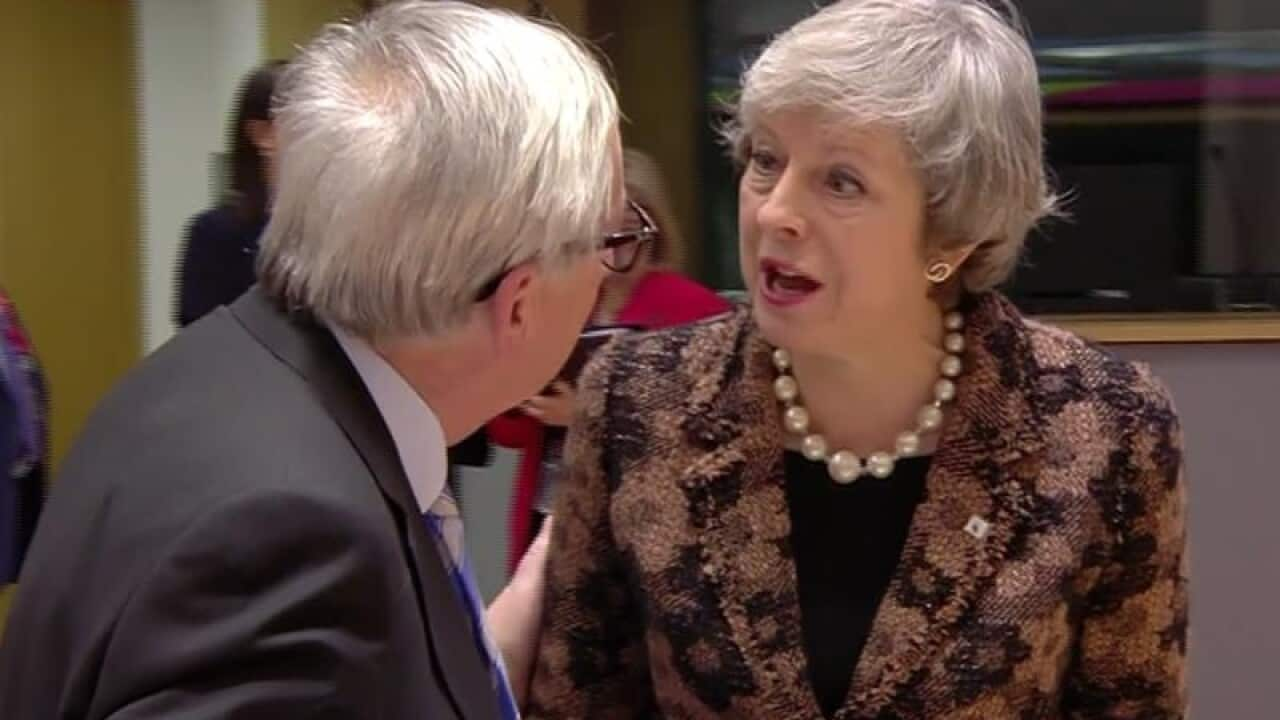An extraordinary public row broke out Sunday between British Prime Minister Theresa May and former Labour party leader Tony Blair over her Brexit deal.
May accused Blair of insulting voters and trying to undermine her government with calls for a second referendum to break the political deadlock over the divorce deal she struck with the EU.
"For Tony Blair to go to Brussels and seek to undermine our negotiations by advocating for a second referendum is an insult to the office he once held and the people he once served," May said in a statement issued late Saturday.
"We cannot, as he would, abdicate responsibility for this decision. Parliament has a democratic duty to deliver what the British people voted for."
Blair, who was Labour prime minister between 1997 and 2007, on Sunday accused the Conservative leader of being "irresponsible".
"The sensible thing is now to allow parliament to vote on each of the forms of Brexit canvassed, including the prime minister's deal," he said in a statement.
"If they can't reach agreement then the logical thing is to go back to the people."
He added: "What is irresponsible however is to try to steamroller MPs into accepting a deal they genuinely think is a bad one with the threat that if they do not fall into line, the government will have the country crash out (of the EU) without a deal."
Blair opposes Brexit and, as May's deal faces opposition on all sides of the House of Commons, he has stepped up calls for the public to vote again.

Theresa May's senior ministers are deeply divided over what to do if her Brexit plan fails. Source: AAP
May has repeatedly ruled out holding a new referendum, saying the result in 2016 was clear.
But growing numbers of MPs believe a "people's vote" is the only way to break an impasse that risks Britain leaving the EU on March 29 without any agreement at all.
May's chief of staff, Gavin Barwell, was on Sunday forced to deny reports that he was planning for such an outcome.
The same reports also said May's effective deputy, David Lidington, was in talks with opposition Labour MPs about a new vote.
Lidington replied that he always listened to MPs' views but pointed to recent remarks in parliament where he said a second referendum may not be decisive and could damage confidence in democracy.
Separately, Foreign Minister Jeremy Hunt suggested Britain could thrive if it left the EU with no deal, and admitted he would like to "have a crack" at May's job.
"But I think the first thing is to get us through this challenging next few months and I passionately believe Theresa May is the person to do that," he told the Sunday Telegraph.
No second Brexit vote
Britain's government is not preparing for a second referendum on Brexit, ministers say, sticking to the script that Prime Minister Theresa May's deal could still pass through parliament with a few changes.
Asked if the government was preparing for a vote, education minister Damian Hinds told Sky News on Sunday: "No, a second referendum would be divisive. We've hadthe people's vote, we've had the referendum and now we've got to get on with implementing it."
Trade minister Liam Fox also said a second referendum would "perpetuate" the deep divisions in Britain, adding that the prime minister was securing the necessary assurances to persuade parliament to back her deal.
He said that would take some time.
"It will happen over Christmas, it's not going to happen this week, it's not going to be quick, it will happen some time in the New Year," he told the BBC's Andrew Marr show.
But the longer it takes, voices urging a change of tack are getting louder and the pressure on the main opposition Labour Party to move against the government is rising.
Simon Coveney, Ireland's foreign minister, said if Britain wanted to put an "entirely new" Brexit proposal forward, the government would most likely have to delay its departure.
May survived a no confidence vote among her Conservative MPs last week, but opposition parties are calling for Labour to propose a parliamentary motion of no confidence against the government this week.
Labour has repeatedly said it will call such a motion at "the best time", or when it knows it can win, and for now will try to force the government to bring its deal to parliament sooner.
Andrew Gwynne, Labour's policy chief for communities and local government, said: "We will be using whatever mechanisms we have at our disposal next week to try and force the government to bring forward that deal for a vote before Christmas."


